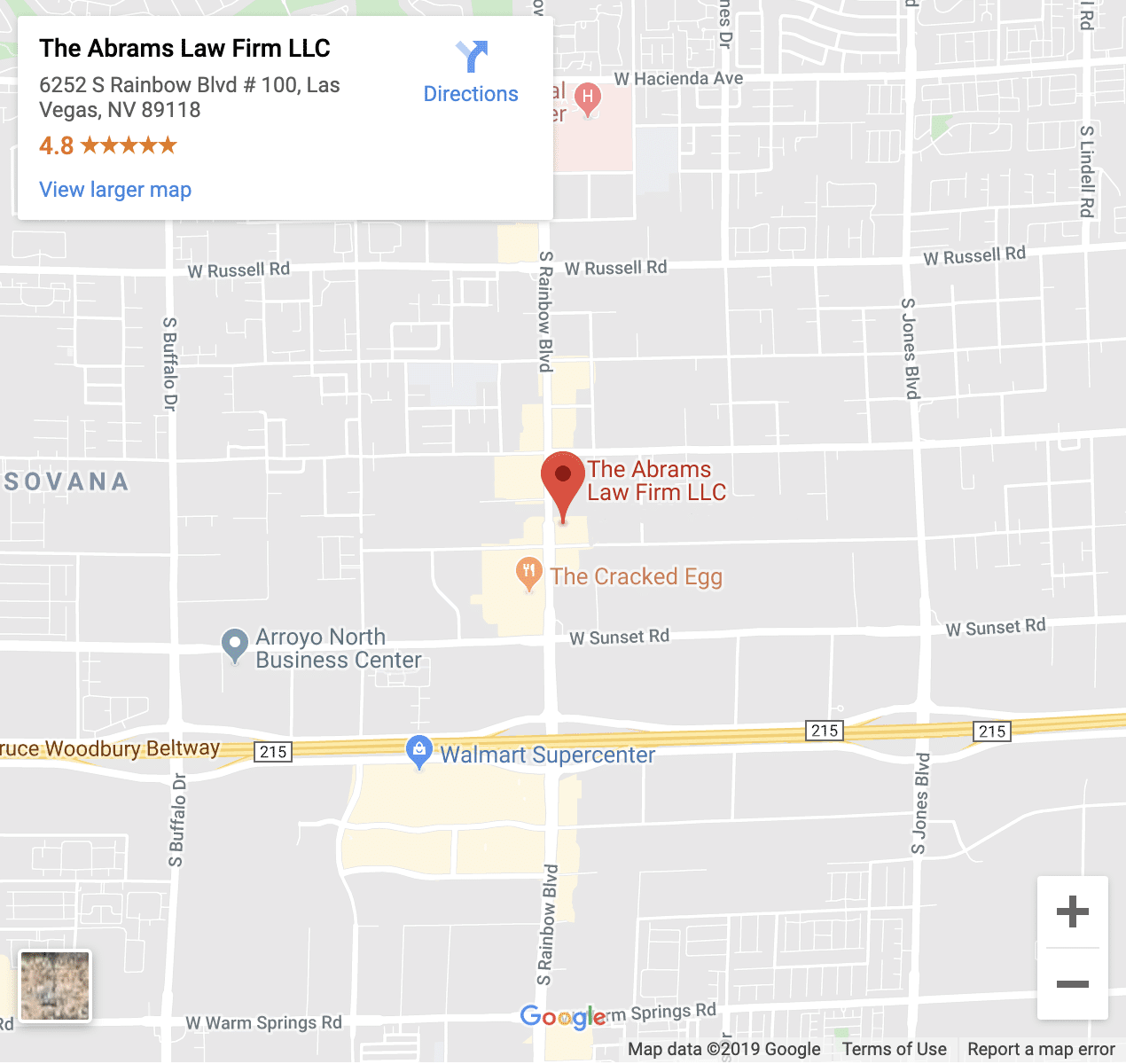Experienced Las Vegas divorce attorneys have seen the social stigma of divorce change drastically over time. Historically, divorces were less common and had to be based on some fault of one of the parties. One spouse would have to catch the other spouse cheating, allege abuse or fraud, or otherwise demonstrate that the marriage should end due to the actions of one of the parties. But things have changed from decades ago. Nowadays, divorces are available in many states without alleging fault. Nevada is one such no-fault state. The grounds for no-fault divorce are, however, different throughout each of the fifty states. In some states, not only is fault not a requirement, it’s actually not a permissible legal ground for a divorce action.
Seeking a No-Fault Divorce
Pursuant to Nevada Revised Statutes 125.010, there are only three grounds for divorce:
- Incompatibility between the parties
- The parties have lived apart for at least one year
- Incurable insanity for two years
Incompatibility of the parties, also called “irreconcilable differences” simply means that the parties’ marriage cannot function. This is the most common reason stated in a Complaint for Divorce filed in Las Vegas. No spouse can deny the other spouse a divorce. Only one spouse needs to allege incompatibility. In other words, only one party must be willing to tell the court that they and their spouse are incompatible and that there is no chance that the incompatibility will change in the future. The Las Vegas family courts will not stand in the way of a spouse who truly believes their marital differences are irreconcilable.
In addition to irreconcilable differences, a spouse may also seek a divorce if the parties have been living separate and apart for at least a year, without cohabitation. A party seeking divorce can prove separation using a variety of evidence, including separate leases, utility bills, testimony from family and friends, or with a written statement from both parties.
Finally, a party could seek a divorce if their spouse is legally insane. Insanity must be shown with proper medical or psychological evidence, such as the testimony of medical professionals or admission to a mental health facility. The spouse must have been incurably insane for at least two years before the divorce filing. Insanity is a difficult allegation to prove and completely unnecessary on a legal basis. Incompatibility is reason enough.
Complications to No-Fault Divorce
Adultery, abuse, fraud, etc., are no longer listed as grounds for divorce. The family courts have no interest in entertaining any reason for a divorce other than those stated above. Infidelity is particularly not of interest to the family courts. Some people believe that a cheating spouse should financially compensate the other spouse for their indiscretions during the divorce proceedings. This is simply not so, but if the cheating spouse spent significant marital funds on the person they were having the extra-marital affair with, a claim for marital waste may be appropriate. Adultery is not relevant to deciding issues in a divorce, but if one spouse has been wasting marital assets on a third party or giving them expensive gifts, that spouse’s share of the marital estate might be decreased.
Some other elements of fault may also be relevant to your divorce proceeding. Allegations of abuse can be grounds for an order of protection, affect child custody and visitation, and even affect who gets to stay in the family home. If one spouse lied about a previous marriage or committed fraud, then there may be grounds for an annulment of the marriage, which is distinct from a divorce. Our divorce lawyers can counsel you on the best approach for you to take regarding the conduct of your spouse if you believe it is relevant to an important issue in your case.
Trusted Legal Representation for Your Divorce
Our talented and effective Las Vegas divorce lawyers are ready to help you navigate all aspects of your divorce matter. They will speak with you directly regarding a consultation. Call our office at 702-222-4021 to speak with one of them and see if what we offer is right for you. We are here to guide you through the process and fight to protect your rights at every turn.


